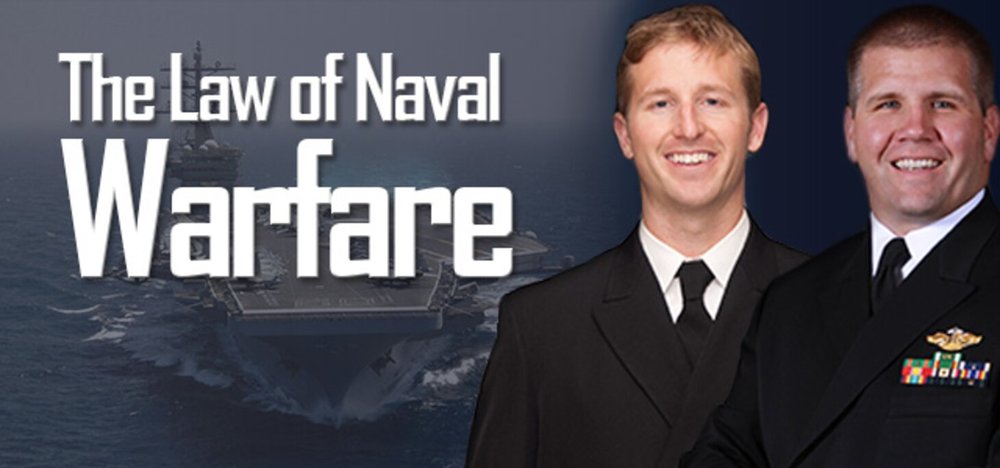Navy judge advocates Cmdr. Tim Boyle and Cmdr. Sean Thompson were published in the recently released book, The Law of Naval Warfare, which was compiled by the University of Adelaide Law School in Australia.
Boyle – who currently serves as Assistant Fleet Judge Advocate (National Security Law) at U.S. Fifth Fleet in Bahrain – wrote a chapter titled, “At the Edges of Peace and War: Non-Traditional Vessels in Great Power Competition and International Armed Conflict.” Thompson – who currently serves as Fleet Environmental Counsel at U.S. Pacific Fleet in Hawaii – authored a chapter titled, “A Growing Weight on the Scale or Through a Glass Darkly? Environmental Considerations During Military Operations.”
“I’m honored to have been considered and chosen to write the environmental chapter to this book,” said Thompson. “International environmental law and its application to military operations is a developing area; as the globe continues to focus more on environmental issues, its applicability to armed conflict will likely continue to garner more attention.”
“The editors of the book, Professors Stephens and Stubbs, were phenomenal in their support throughout the entire process; and, I feel privileged to have been part of such a diverse team,” he added.
Both Boyle and Thompson previously served in commands that operated alongside the U.S. Navy’s Australian counterparts – both in training environments as well as real world kinetic operations. They said – when reflecting upon their work with Australian representatives – that common understanding and adherence to international law pertaining to naval warfare is vital when collaborating with U.S. allies.
Boyle and Thompson were approached in fall 2018 with this opportunity to share their expertise by the JAG community’s National Security Law (Code 10) and Environmental Law (Code 12) divisions. They spent approximately six month writing and editing their chapters, respectively.
During that time, they conducted extensive external research, and they also consulted notes and relied upon recollections from their experiences providing legal support to joint and naval commands. Thompson also cited his tour as a LLM (Master of Laws) candidate at Lewis & Clark Law School as instructive when developing his overall thesis to his assigned chapter.
The final book will be used by both academics and practitioners studying the law of naval warfare, which has expanded and evolved in recent years. The book’s chapters address a variety of related topics, and they are authored by professors within academia as well as practitioners in the Australian, American, and Royal Navies.
* The views and opinions expressed in “The Law of Naval Warfare” belong solely to the authors and contributors and do not necessarily reflect an official policy or position of the U.S. Navy or the Department of Defense. Further, no Department of Defense endorsement of any non-federal publicly or entities is intended.
